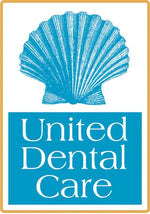6 Vitamin and Mineral Deficiencies Affecting Oral Health
Nutrition serves as the foundation for strong teeth. It plays a crucial role in maintaining oral health. On the other hand, deficiencies may lead to oral issues. For example, if you lack certain nutrients, it can impair gum health, and weaken the enamel, which can lead to other dental problems like tooth decay. To maintain good oral health, proper nutrition is a must. In this article, we will discuss six essential vitamins and minerals and how they work together to support oral health.

Common Signs of Vitamin and Mineral Deficiencies in Oral Health
Do your gums bleed easily? It may be a sign of vitamin C deficiency.
Do you feel sharp sensitivity when drinking hot or cold beverages? It could indicate weakened enamel due to low levels of calcium or vitamin D.
Do you have bad breath? It might be a sign of poor digestive health linked to low zinc levels.
If you spot these signs, you better make dietary adjustments to keep your teeth strong and healthy. Addressing these symptoms can be a simple but effective step in maintaining strong oral health.
Calcium and Phosphorus: Essential for Strong Teeth
Calcium and phosphorus are crucial minerals for strong, healthy teeth. Calcium fortifies tooth enamel. Phosphorus, on the other hand, complements calcium by helping it bind to the enamel. These minerals work together to reduce the risk of tooth decay by strengthening the enamel.
Calcium deficiency makes your teeth vulnerable to cavities. Elderly individuals and post-menopausal women are more prone to calcium deficiency.
To support enamel strength, you should aim for a daily intake of 1,000 mg of calcium and 700 mg of phosphorus. Dairy products, such as milk, cheese, and yogurt, are excellent sources of both. Additionally, nuts, tofu, leafy greens, and legumes are also rich in these minerals.
Vitamin D: The Key to Calcium Absorption
Vitamin D is essential for calcium absorption. It directly impacts tooth and bone health. Vitamin D deficiency will make it hard for your body to absorb calcium, leading to weakened teeth. It also contributes to gum disease because low calcium levels weaken the structure of supporting teeth.
A study published in the Journal of Periodontology found that low levels of vitamin D were associated with a higher risk of periodontal disease. It is an inflammation of the gums that can lead to tooth loss.
Sunlight is the primary source of vitamin D. 10-15 minutes of sun exposure per day is enough. However, for individuals in low-sunlight areas or during winter months, foods like fatty fish, egg yolks, and fortified dairy products, along with supplements, are valuable sources of vitamin D to ensure sufficient calcium absorption and stronger, healthier teeth.
Vitamin C: Preventing Gum Disease
Vitamin C is crucial for gum health. It strengthens gum tissue by supporting collagen formation. This is essential for maintaining the structure that holds teeth in place. Without enough vitamin C, gums may become weak and prone to damage. This may lead to redness, swelling, and bleeding, especially when brushing or flossing.
Beyond strengthening gums, vitamin C also acts as an antioxidant. It helps the immune system combat infections that can develop in the mouth. Adults are recommended to get around 75-90 mg of vitamin C daily. Citrus fruits, strawberries, bell peppers, and leafy greens are excellent sources.
Vitamin B12: Protecting Oral Tissues
Vitamin B12 is essential for producing healthy red blood cells. A deficiency in B12 can lead to oral issues such as mouth sores, bad breath, and weakened gum tissue due to insufficient oxygen supply.
Certain groups are more likely to have B12 deficiencies. Vegans, for example, often miss out on natural B12 sources found in animal products. Elderly individuals may have a harder time absorbing B12 as they age. For these at-risk groups, fortified foods and B12 supplements are helpful sources.
Vitamin K: The Overlooked Nutrient for Oral Health
Vitamin K plays a crucial role in oral health by helping in the effective use of calcium to strengthen teeth. It activates proteins that help bind calcium to the tooth structure, supporting remineralization and reducing the risk of tooth decay.
For a natural source of vitamin K, leafy greens like kale, spinach, and broccoli are excellent options.
Special Populations at Risk
Certain populations are more vulnerable to nutrient deficiencies. The elderly, for example, often have reduced nutrient absorption and may need calcium and vitamin D supplements to protect teeth and bones. Vegans can be prone to vitamin B12 deficiencies making B12 supplements or fortified foods important. Children require balanced diets rich in calcium and vitamin C to support developing teeth and gums. Additionally, those with conditions affecting nutrient absorption, like Crohn’s disease, should consult their dentist for tailored supplements to maintain strong teeth and overall oral health.
Consult a Culver City Dentist
Take charge of your oral health by consulting both your dentist in Culver City and healthcare provider to monitor your nutrient levels and ensure a balanced diet that supports strong teeth and healthy gums.
Remember, to ensure you have enough vitamin and mineral levels, incorporate a variety of nutrient-rich foods, such as leafy greens, dairy, nuts, and fruits, into your diet. For those at risk, such as vegans or the elderly, consider supplements for vitamins B12, D, and calcium.
Regular dental check-ups are essential for catching early signs of deficiencies. Consider scheduling an appointment with a dental practice in Culver City, such as United Dental Care, to receive expert guidance and personalized care for dental concerns. Contact our team today!




 By:
By: 

